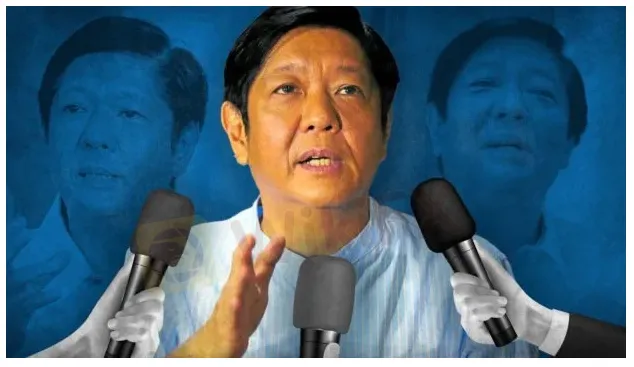简体中文
繁體中文
English
Pусский
日本語
ภาษาไทย
Tiếng Việt
Bahasa Indonesia
Español
हिन्दी
Filippiiniläinen
Français
Deutsch
Português
Türkçe
한국어
العربية
PH gets better political risk rating, but 2022 growth still in doubt
Abstract:MANILA, Philippines — The Philippines has gained brownie points for holding generally smooth elections, but economists still doubt the countrys growth prospects for the year as they await clues to the economic policies of President-apparent Ferdinand Marcos Jr.

Fitch Solutions, in their latest country risk assessment, said a Marcos victory “bodes well for policy continuity” in the country and suggests a smooth transition from the outgoing Duterte administration.
“We have raised the Philippines short-term political risk index (STPRI) score to 66.5 out of 100, from 64.0 previously,” Fitch Solutions said in the report.
A higher score means greater political stability in a country and less risk for investors. Short-term means the outlook horizon reaches 12 months ahead.
The slight improvement in the Philippines STPRI score is based solely on an improvement in the policy continuity component, with Fitch Solutions raising the score to 80 from 70. The other components are unchanged.
Peter Hoflich, a Singapore-based director of the New York-based Fitch Group, clarified that they usually lower the STPRI score before an election, to reflect risks associated with policy continuity as a result of election uncertainty.
“We could have a surprise election result and the new leader could have an entirely different policy direction,” Hoflich told Inquirer Business.
“Once the election is over and the president-elect is known, that uncertainty will fade [most of the time]; so we raise the score,” he said.
Policy continuation
“So far, Marcos has not revealed members of his economic policy team and has provided few policy details on his campaign trail,” Fitch Solutions said.
Still, the company believes that Marcos will likely continue many of Dutertes economic policies, especially the “Build, Build, Build” infrastructure program—something that the former senator has publicly said he would do.
But Fitch, like other economic think tanks, is also uncertain at the possible economic directions since the president-apparent has not clarified his position on key issues.
Miguel Chanco, chief emerging Asia economist of Pantheon Macroeconomics, in a report on Wednesday, agreed that Marcos “landslide victory” eased some uncertainty.
“The good news for the economy is that the inherent short-term political event risks tied to any transition in government likely will recede quickly, as the election has produced a clear outcome,” Chanco said.
“The dust from the election should settle fairly quickly, but we reckon that itll still take some time before investment gets going again,” he added.
Chanco said they realize that “we‘re unlikely to get any inkling of the potential policy trajectory until the third quarter, at the earliest, when Marcos’s administration will start to take shape.”
“[But] this will be too late to salvage this year‘s economic growth prospects, assuming we’re proven right about the temporary—but harsh—brakes likely applied in the current quarter to government spending and investment,” he added.

Disclaimer:
The views in this article only represent the author's personal views, and do not constitute investment advice on this platform. This platform does not guarantee the accuracy, completeness and timeliness of the information in the article, and will not be liable for any loss caused by the use of or reliance on the information in the article.
Read more

Elderly Ipoh Man Loses Nearly RM1 Million in Online Investment Scam
An elderly man in Ipoh, Malaysia, has fallen victim to an online investment scam, losing RM974,000 in the process. The 67-year-old’s ordeal came to light after he lodged a report with the Ipoh district police on January 11, 2025.

Housewives Scammed of Over RM1 Million in Gold Investment Fraud
A fraudulent gold investment scheme has caused significant financial losses for 44 individuals, predominantly housewives, in Kelantan, Malaysia. The victims, collectively, have lost over RM1 million to the scheme, according to the Malaysia International Humanitarian Organisation (MHO).

Data to Watch This Week
Last week, U.S. employment data significantly exceeded expectations, further solidifying market expectations that the Federal Reserve will not be making aggressive interest rate cuts. This week, the focus shifts to important economic data and the start of earnings season.

Confirmed! US December non-farm payroll exceeded expectations
Last Friday, the U.S. Bureau of Labor Statistics released strong employment data, further diminishing market expectations for interest rate cuts by the Federal Reserve this year. Currently, the market widely expects the Fed to begin cutting rates again in October.
WikiFX Broker
Latest News
How to Automate Forex and Crypto Trading for Better Profits
Wolf Capital Exposed: The $9.4M Crypto Ponzi Scheme that Lured Thousands with False Promises
Confirmed! US December non-farm payroll exceeded expectations
Is Infinox a Safe Broker?
How Did the Dollar Become the "Dominant Currency"?
400 Foreign Nationals Arrested in Crypto Scam Raid in Manila
Singapore Blocks Polymarket Access, Following U.S. and France
OneZero Collaborates with Ladies Professional Golf Association (LPGA)
Housewives Scammed of Over RM1 Million in Gold Investment Fraud
Massive Hawala Scam: Rs 10,000 Crore Routed Abroad
Currency Calculator






